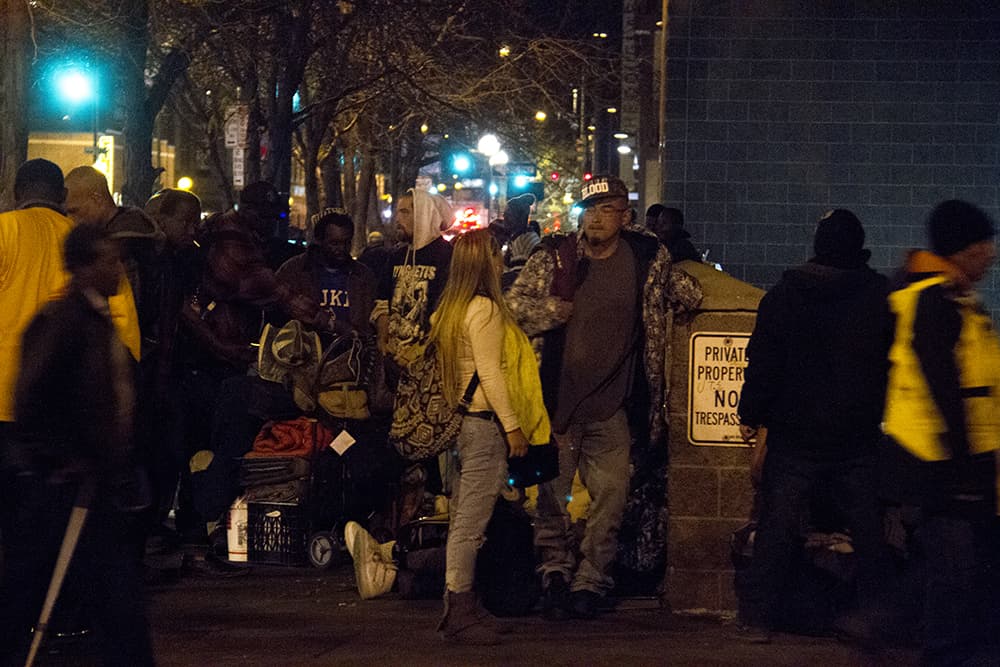Tyrone Henry has been arrested 64 times in five years. Alvin Garnier, 48 times. Like all of Denver's most frequently arrested and cited residents -- identified by 9News and Rocky Mountain PBS in a joint investigation -- they're not violent criminals but homeless addicts whose most frequent offense is drinking in public.
The reports raise some important questions about how we are and are not responding to homelessness in Denver. Henry -- Denver's most arrested and cited man -- in particular, seems to be very well known to an individual Denver police officer who has cited him 34 times since 2013. Denver police officer Jarrod Foust, who frequently works for RTD, has written 3,892 tickets -- 80 percent of them for public consumption of alcohol -- between Jan. 1 2013 and September 2016, 9News reported.
Rocky Mountain PBS and 9News estimate that just the 10 most arrested and cited people cost Denver taxpayers more than a million dollars in jail, court and detox during the five-year period they studied.
Police spokesman Sonny Jackson said all of these people are offered help when they're arrested, but it's pretty clear that this cycle isn't being interrupted. Henry goes into jail an alcoholic and comes out of jail an alcoholic. He tells reporter Jeremy Jojola it's his choice. Anyone who has personal experience with addiction knows that "choice" is a complicated matter.
9News contrasts the constant incarceration approach to this same Denver Police Department's Homeless Outreach Unit, whose officers check in on homeless people and offer them assistance with basics like food and shelter and rarely write tickets. The focus is on safety.
Denver officials acknowledge that arresting homeless people who are addicts or who have mental illness isn't going to make them not addicts or not mentally ill. They hope that opening more Housing First units will make a difference -- though the waiting list for the first 250 units is already more than 800 people long.
Housing First is just what it sounds like. It's a program aimed at those who are chronically homeless. Instead of having to get sober or get their mental health under control and get a job and save up money for housing, they're simply offered housing. First. They don't have to be sober or employed or any of that.
This goes against a couple hundred years or more worth of social conditioning about who "deserves" help and what makes a poor person worthy of sympathy, but it's an approach that is now decades old and is widely considered best practice when it comes to reducing both the number of homeless people on the street and the cost born by the broader public.
The stress of living on the streets often exacerbates addiction and mental illness, making it harder for people to stabilize and easier to relapse, even when they want to change. Having housing can make it easier to stay sober or keep taking medication and attend therapy.
And even when someone keeps drinking, well, they're doing it at home, like millions of other housed people do every day. They're not getting cited, they're not going to jail and they're not ending up in the emergency room.
A study from the Colorado Coalition for the Homeless looked at residents of their own Housing First programs and found that the cost of emergency services -- including jail -- went down almost 73 percent over a two-year period for those who had housing. That represents an average savings of $31,545 per person.
And for that cost savings, people get some dignity back too.
Earlier this year, I talked to Sonia Riggs, who got housing through a Housing First program in Boulder. She had been a cake decorator at one point before she was homeless, and now she was baking again.
But more than anything, she appreciated the ability to have a little space to herself.
"It has changed me so much because I was on the streets for two years," she said. "I love the silence. It's great."













